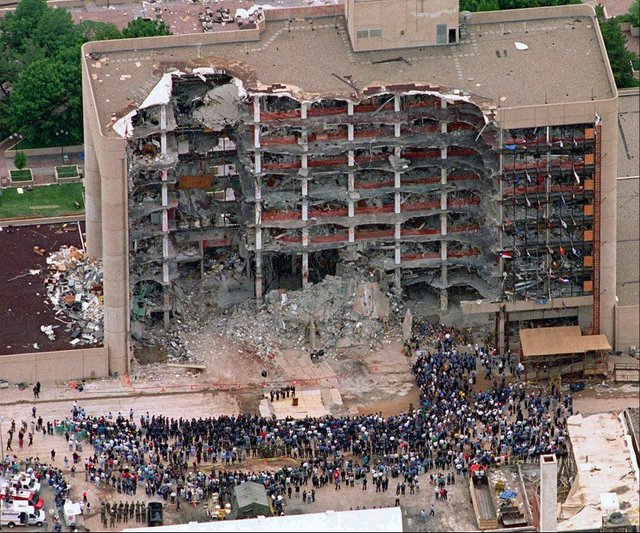
On April 19, 1995, Timothy McVeigh and Terry Nichols bombed the Alfred P. Murrah Federal Building in Oklahoma City, killing 168 people and wounding 680. One third of the building was destroyed, along with damage to 324 other buildings and 86 cars, causing $652 million in damage. McVeigh was motivated by his opposition to the United States federal government and his anger over its actions in the 1992 Ruby Ridge incident and the 1993 Waco Siege. He timed the attack to occur on the second anniversary of the burning of the Branch Davidian compound in Waco, Texas.
To most people, McVeigh is obviously a reprehensible criminal whose actions cannot possibly be justified. Some theories of ethics would agree with that assessment, while others would recommend a different outlook. Let us examine the Oklahoma City bombing through the lenses of deontology, consequentialism, and virtue ethics to see how each provides a different perspective on McVeigh.
Deontology
Deontology argues that decisions should be made by consulting moral principles. The rightness or wrongness of an act is thus determined by whether it is in keeping with such principles. Deontological theories include the Kantian categorical imperative, which says that one should act only according to the maxim that one can will that it should become a universal law; moral absolutism, which argues that certain actions are intrinsically good or evil; divine command theory, which appeals to God as the judge of right and wrong; and Hoppean argumentation ethics, which derives moral rules from the act of argumentation.
In all such theories, murder is forbidden because initiating violence to kill someone cannot be in accordance with universal law. By definition, murder is not universal but unilateral; if it would occur in reciprocity, then it is a mutual assisted suicide rather than a case of murder. The people killed by McVeigh in Oklahoma City were not the individuals responsible for the state-sanctioned crimes committed at Ruby Ridge and Waco, and were only tangentially connected to the people who were responsible. Though 99 of the 168 victims were part of the state apparatus, the vast majority were unarmed civil 'servants'. Only eight of the victims were federal law enforcement agents and six were military personnel. The rest of the victims were civilians, and they were not being used as innocent shields by legitimate targets for defensive force. Thus, a deontological approach finds McVeigh's actions to be completely unjust and criminal in nature.
Read the entire article at ZerothPosition.com